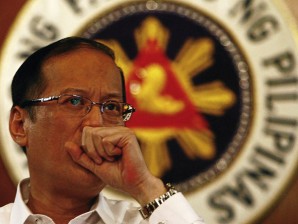Road funds released under Aquino administration
The P1.2 billion in funds from the road users’ tax that were improperly funneled to legislators’ districts for unspecified road projects occurred during the Aquino administration.
The approval for P1.2 billion in funds for road maintenance was made in a Road Board resolution issued after a special board meeting on Dec. 16, 2010, six months after the Aquino government came to power.
The Road Board is the seven-member body created in 2000 to ensure the efficient management of the funds from the motor vehicles users charge (MVUC), or the road users’ tax, collected from motor vehicle owners to fund the maintenance of public roads and transport infrastructure.
In its audit report on the Road Board for 2010, the COA questioned why the funds for road maintenance went directly to legislators’ districts and not to the Department of Public Works and Highways, as required by law.
It also questioned why the funds were released without specifying the projects to be implemented, and without a request being made by the Road Board.
Article continues after this advertisementThe COA noted that while the Road Board had approved the allocation of P1.2 billion for regular preventive maintenance road projects from the MVUC funds in the December 2010 board resolution, it had not made a request for funding.
Article continues after this advertisementOf the P1.2 billion approved in the December 2010 board resolution, P1.1 billion was released by the DBM for 136 projects, the COA said.
However, the DBM issued the special allotment release orders (Saros) without specifying the projects to be implemented and released these directly to the legislative districts instead of the DPWH implementing offices, giving the legislators the discretion to choose which projects to implement.
The audit agency found that the region that got the highest amount of funds was the National Capital Region, which received P155 million for 23 projects. It was followed by the Calabarzon region, which got P140 million for 16 projects; Albay, which received P112 million for 14 projects; and Western Visayas, which received P110 million for 13 projects.
The report did not specify the legislative districts that received the funds.
Because of the lapses, the COA said there was an increased risk of misallocation of the MVUC funds and non-maintenance of priority roads.
The Road Board, in response, told the COA that it had taken several steps in coordination with the DPWH to ensure that the MVUC funds are not misused and their implementation aligned with national development priorities.
It said it had instructed district engineering offices that approved projects should follow the set standards and pass individual projects evaluation.
The board said it had also met with district engineers and regional directors to discuss the implementation standards and standard unit costs. It has also restructured the cost in the implementation of the MVUC projects, which it said resulted in the longer coverage of maintenance projects.
The Road Board is composed of the public works secretary (who serves as ex-officio head) and the finance, budget and transportation secretaries. The remaining three members come from transport and motorist organizations.
Originally posted at 06:18 pm | Wednesday, October 26, 2011
